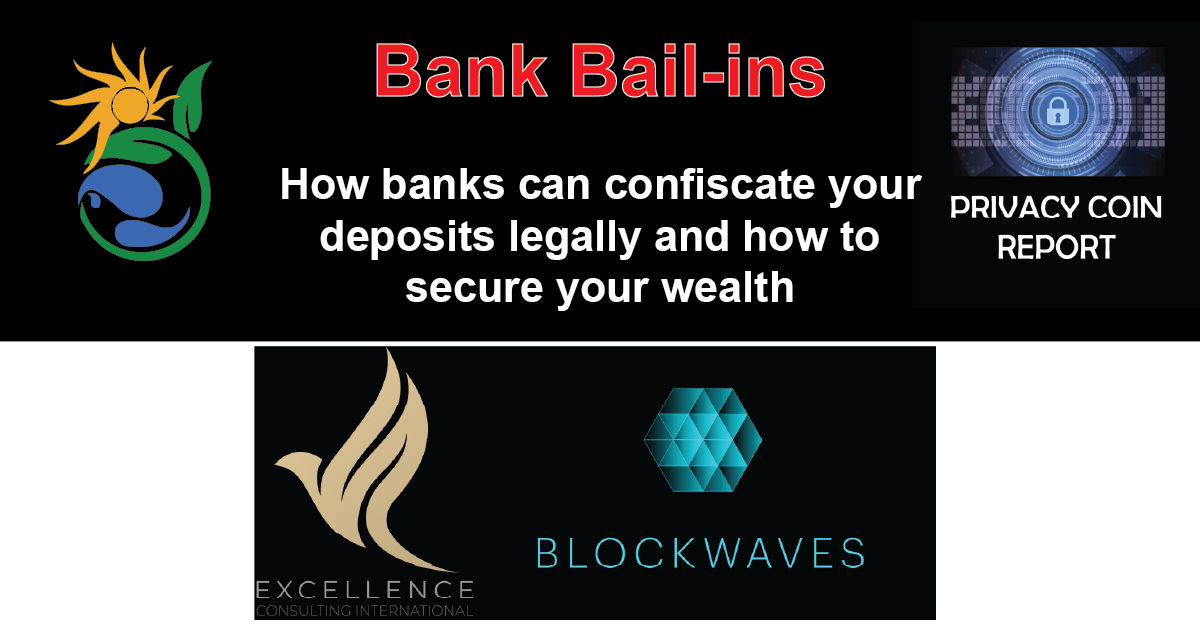
[Video] Bank Bail-ins –
How Banks can Legally Confiscate Deposits & How to Secure Your Wealth
Since 2014, bank bail-in laws have been enacted in G20 nations (comprising of the 19 countries listed below, the European Union, and representatives of the International Monetary Fund (IMF) and the World Bank). Bank bail-ins are similar to bank bail-outs, in that both are implemented to prevent the collapse of an insolvent bank. The difference between the two terms is in who bears the financial burden of rescuing the failing bank.
A bank bail-out occurs when the government provides immediate relief to the insolvent bank by the direct injection of capital, as occurred in the 2008 Financial Crisis. A bank bail-in, in comparison, occurs when capital of bank depositors and bondholders is confiscated and used to rescue the failing bank. A bail-in experiment was conducted in Cyprus in 2013, where depositors holding more than 100,000 euros had a portion of their wealth confiscated.
In this video, Sim Khela, Director of Excellence Consulting discusses the legal framework in place for bank bail-ins, likelihood for bank deposit confiscation and how to protect your wealth held in fiat currencies within the traditional financial system.
Excellence Consulting is a firm offering cryptocurrency consulting services for individual investors, family offices, and corporations. They may be contacted by email info@excellenceconsulting.co or telegram @ExcelConsulting
G20 Nations
Australia
Canada
Saudi Arabia
United States
India
Russia
South Africa
Turkey
Argentina
Brazil
Mexico
France
Germany
Italy
United Kingdom
China
Indonesia
Japan
South Korea
____________________________________________________________________________________________________________
Disclaimer: All contexts of blog posts are based solely upon the analysis and opinion of the author and are not intended to construe any financial advice in any form.

